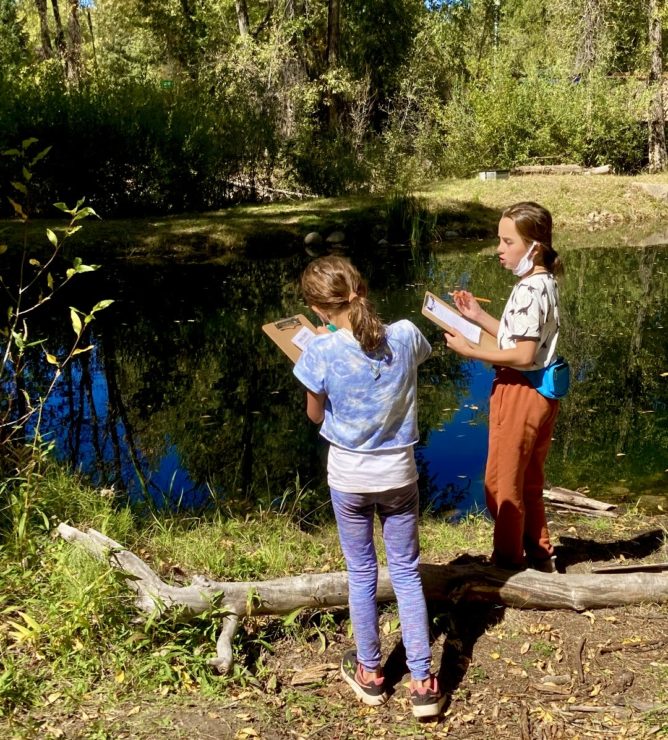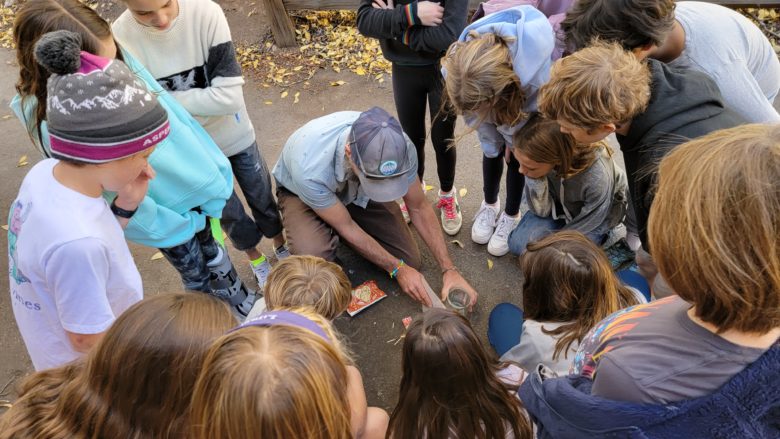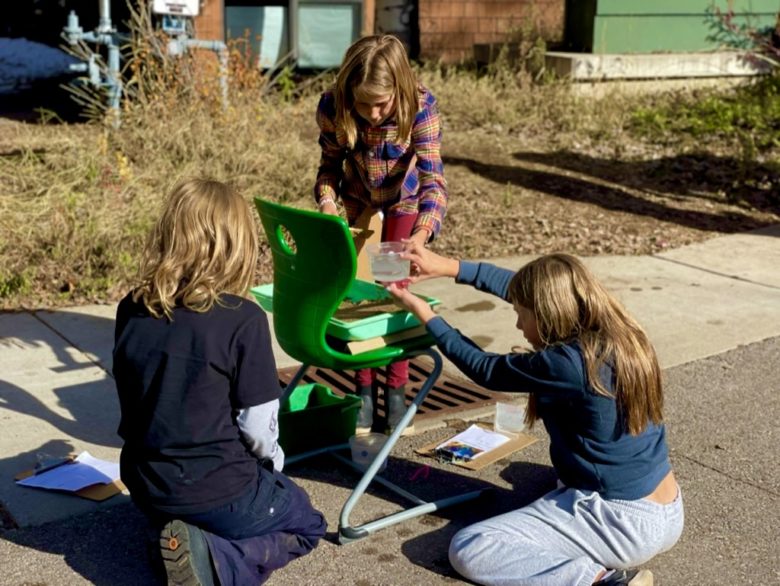Stories
Citizen science in Fifth Grade
January 25, 2023

Don’t be alarmed if you spot a group of 10- and 11-year-olds wading through Castle Creek the next time you’re on campus. They are “citizen scientists” monitoring water quality in the river as part of their Fifth Grade science curriculum.
Grasping abstract ideas beyond everyday observations and understanding how things are connected are typical developmental milestones of Fifth Graders. Splashing around in the water is also a fun way to learn, according to Fifth Grader Gunner C., who said, “Getting to do experiments is the best way to really understand science.” Furthermore, science projects like this help Aspen Country Day students become “global thinkers whose outlook is grounded in a sense of place and environmental responsibility,” as described in the school’s graduate outcomes.
Fifth Grade scientists engage in authentic problem solving tasks by taking the scientific concepts and principles they learn and applying that knowledge to everyday life. Every month throughout the school year they independently sample water from Castle Creek, apply chemistry techniques, and conduct investigations using stream tables that simulate a river eroding its channel. The data from their water quality samples are submitted to Colorado Parks and Wildlife, with the hands-on experience teaching students to generate their own questions that they can answer using the tools they’ve acquired.
Each year, Fifth Graders tackle the problem of plastic pollution in watersheds and oceans. By studying the waste stream in the Roaring Fork Valley through units in recycling, composting, waste diversion opportunities, and upcycling, they develop a deeper understanding of resource use with a particular attention to issues critical in the Mountain West.

Not only are Fifth Graders getting hands-on experience in field research, they’re also learning to generate questions and figure out how to use scientific methods to answer them. They students consider it a bonus, and an honor, to submit their water-quality results to a state agency.
“It’s really cool and fun that they trust the information we send them,” said Emma M.
“Citizen science is something we initiate to start students in a pattern of meaningfully participating in causes close to the local community,” said Brett Nelson, who teaches math and science for Fifth Grade.
Fifth Graders take field trips to different locations along the Roaring Fork River to compare the geomorphological characteristics. Students gain map-reading skills through the use of local and national topographic maps, using measurement and landforms to draw, to scale, their own map of the network of trails on the hillside behind the ACDS campus. They also integrate the learning about landforms with the concept of watershed in a cross-curricular project with Technology class.
Today’s Fifth Graders will someday enter a wider world beyond the Roaring Fork Valley that needs talented scientists to help solve complex problems. Whether in a classroom or science lab, on a computer simulation or alongside the stream banks of Castle Creek, these students are preparing for the journey ahead by building scientific literacy, skills, and knowledge.
For more about the science program throughout the grades, click here.
